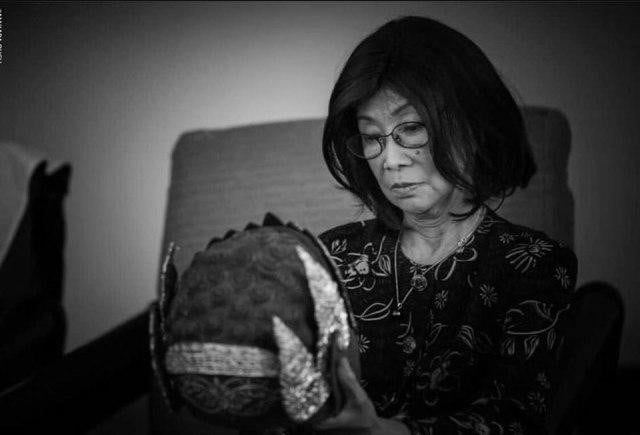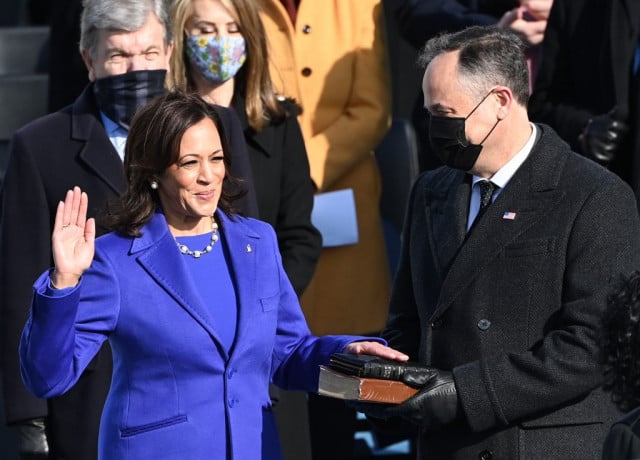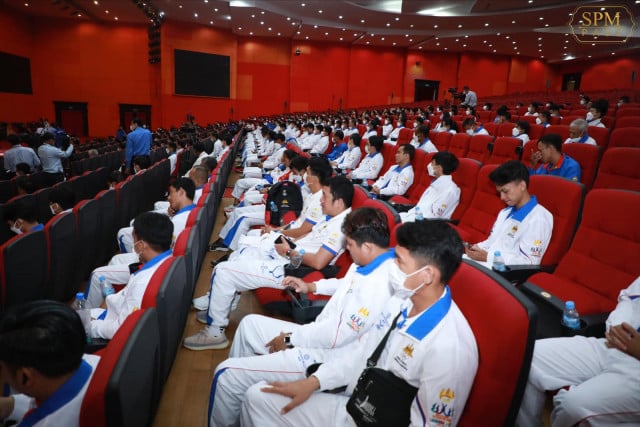Remembering Princess Buppha Devi

- Jazmyn Himel
- November 20, 2019 9:14 AM
PHNOM PENH—Princess Norodom Buppha Devi, who passed away on Nov. 18 due to illness, will be remembered for her love of Khmer classical dance.
As she had said in an interview to Lucretia Stewart in 2010, she had learned to dance “as soon as she could walk”.
“Dance has been in my family for generations” she had said in the interview, “But it belongs to all Khmers and, as I see it, our principal aim is now the preservation of classical dance—not only dance, but all of our culture.”
A star dancer in the Royal Ballet Company in the 1960s, she would contribute to keeping the tradition alive in the country from the 1990s onward. She also worked at having this artform known beyond Cambodian borders while she was minister of Culture and Fine Arts from 1999 till 2004, and throughout the following decades.
Through her support, Khmer classical dance was one of the first artforms to be considered when Unesco adopted the Convention for the Safeguarding of the Intangible Cultural Heritage of Humanity in 2003. Proclaimed on the list that year, the Royal Ballet of Cambodia was inscribed on the list in 2008.
A Star Dancer
Born on Jan. 8, 1943, Princess Buppha Devi was the daughter of King Norodom Sihanouk and Neak Moneang Phat Kanhol.
It is her grandmother Queen Sisowath Kossamak who had her start the rigorous training of Khmer classical dancer when she still was a young child.
“The Apsara dance was conceived in 1962 by the late Queen Kossamak,” according to an article of the Asian Theatre Journal published by the University of Hawaii Press. “It was choreographed for an event in 1964 in honor of General Charles de Gaulle at the Opera de Paris in France”.
“The lead role of the white Apsara was danced by the then-teenaged princess…prima ballerina of the Royal Ballet of Cambodia at the age of sixteen,” according to the article.
That same year, Princess Buppha Devi appeared in the film “L’Oiseau de Paradis” (bird of paradise) by French director Marcel Camus; dressed as a Khmer classical dancer, she performed in front of Angkor Wat.

Photo credit: still from the 1966 film Apsara.
Princess Buppha Devi in 1966 stars in the film “Apsara” of her father then-Prince Norodom Sihanouk.
In 1975, as the Khmer Rouge were about to seize power, Princess Buppha Devi left the country. She would only return in 1991.
Mainly based in France, she said in the 2010 interview that she gave dance lessons to young dancers in Paris during her exile. She also made a trip to Cambodian refugee camps along the Thai-Cambodian border in 1982 to teach girls.
Khmer classical dance for today
Adamant on only having traditional choreographies and those from the 1960s performed, Princess Buppha Devi eventually allowed new ones to be performed, and went about writing ballets herself.
She directed her last production for the Royal Ballet last January: Entitled “Neang Watthana Devi,” which paid tribute to French sculptor Auguste Rodin.
From 2013 through 2016, Princess Buppha Devi was a member of the Senate. She also served on the Privy Council and was a member of the Constitutional Council.
The last public words that Princess Buppha Devi pronounced were at the Lunar Ceremony earlier this month. They were about dance: She asked to “compile, records and documents on the Khmer classical dance for posterity.”
She also appealed to Cambodian artists and non-artists to join forces and keep Khmer classical dance alive.
Princess Buppha Devi’s funeral ceremonies are taking place at the Buddhist pagoda Wat Botum in Phnom Penh. The ceremonies will end Nov. 25.















